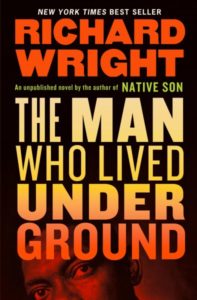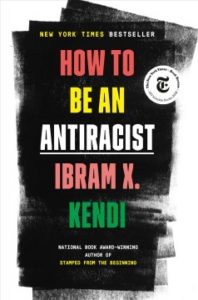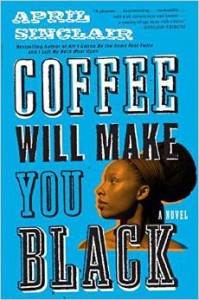Sing, Unburied, Sing
by Jesmyn Ward
[Book]

view/request
In a Faulkner-esque, southern gothic narrative, Jesmyn Ward crafts a story of a poor, Black, Mississippi family enduring drug addiction, the horrors of prison, grief and loss, and everyday struggles. The shifting perspectives primarily follow the lives of Jojo, the thirteen-year-old protagonist losing innocence, and his grieving addict mother, Leonie, featuring limited perspectives from his toddler sister, white, incarcerated father, and aging grandparents. We are dropped into the narrative as the family receives news that Jojo’s father, Michael, is to be released from the Mississippi State Penitentiary and the family begins their journey to bring him home; a journey that ostensibly is not linear or without turmoil. Ward evokes themes of Black spirituality and the supernatural–from phantom appearances to natural remedies. As Leonie struggles with motherhood, leaving Jojo to assume a parental role for his younger sister, the family, both together and individually recognize their realities. Throughout their experiences, Ward evinces just how pervasive intergenerational trauma is and how legacies of slavery and history can never truly be relegated to the past.
Reviewed by Maddi
Tagged: Families, Fiction, Literary fiction, Racism
The Man Who Lived Underground
by Richard Wright
[Book]

view/request
In 1940, Richard Wright had a best seller with his first published novel Native Son. Soon after he began work on another novel, The Man Who Lived Underground, of which he wrote “I have never written anything in my life that stemmed more from sheer inspiration”. This novel, which combines elements of realism, surrealism, and allegory (or at least something allegory adjacent), tells the story of a black man falsely accused of a murdering a white couple. He is violently interrogated by a trio of brutish police detectives, forced to sign a confession, and flees through the sewers and becomes “the man who lived underground”, an experience which changes him profoundly.
The Man Who Lived Underground would not be published as a novel in Wright’s lifetime—a much abbreviated version was published as a short story in 1942—but this year, in cooperation with Wright’s estate, Library of America has published the novel in its entirety, and it is well worth reading.
The novel is published together with an essay by the author, “Memories of My Grandmother”, in which he explains his writing process, inspiration, and intent in the novel. It’s fascinating and completely changed how I perceived the text. There’s also a short afterword by Malcolm Wright, the author’s grandson, which provides further context.
Highly recommend for anyone interested in Wright, African-American literature, or race and racism in the United States.
Reviewed by Ben
Tagged: Fiction, Race, Racism
How to be Antiracist
[Book]

view/request
Dr. Kendi breaks down the difference between being “not a racist” and being “anti-racist”. This book is required reading.
Reviewed by Lisa
Tagged: Non-fiction, Race, Racism
Stay On It
by Julius Eastman
[Online Resource]
view/request
Composer Julius Eastman’s (1940 – 1990) music explores his identities as a gay man and Black American. Stay On It was composed in 1973 and combines minimalism with pop music. This new performance, which features musicains and dancers collaborating remotely, is dedicated to essential workers of color in the United States.
I found out about this performance through one of the many organizations involved in its production: The Dream Unfinished. The Dream Unfinished is an activist orchestra based out of New York which uses classical music as a platform to engage audiences in dialogues surrounding social and racial justice.
Reviewed by Ben
Tagged: Classical music, Music, Pop music, Racism
Coffee Will Make You Black
[Book]

view/request
April Sinclair’s young adult novel tells the story of Stevie, a young black girl, living in Chicago in the late 60s/early 70s. Stevie has to deal with other people’s ignorance about race and sexuality as she comes into her own identity. Her mother wants her to use bleaching cremes to lighten her skin, but she’s becoming involved in the Afro-American Club at school and she begins to wear her hair natural. Stevie’s Grandma and her mama are strong influences on Stevie and she finds comfort with her Grandma and is often frustrated by her mama. This is a great book for adults, young adults, and teens.
Reviewed by Bridget
Tagged: Coming-of-age, Families, Fiction, Friendship, LGBTQ, Racism, Sexuality




